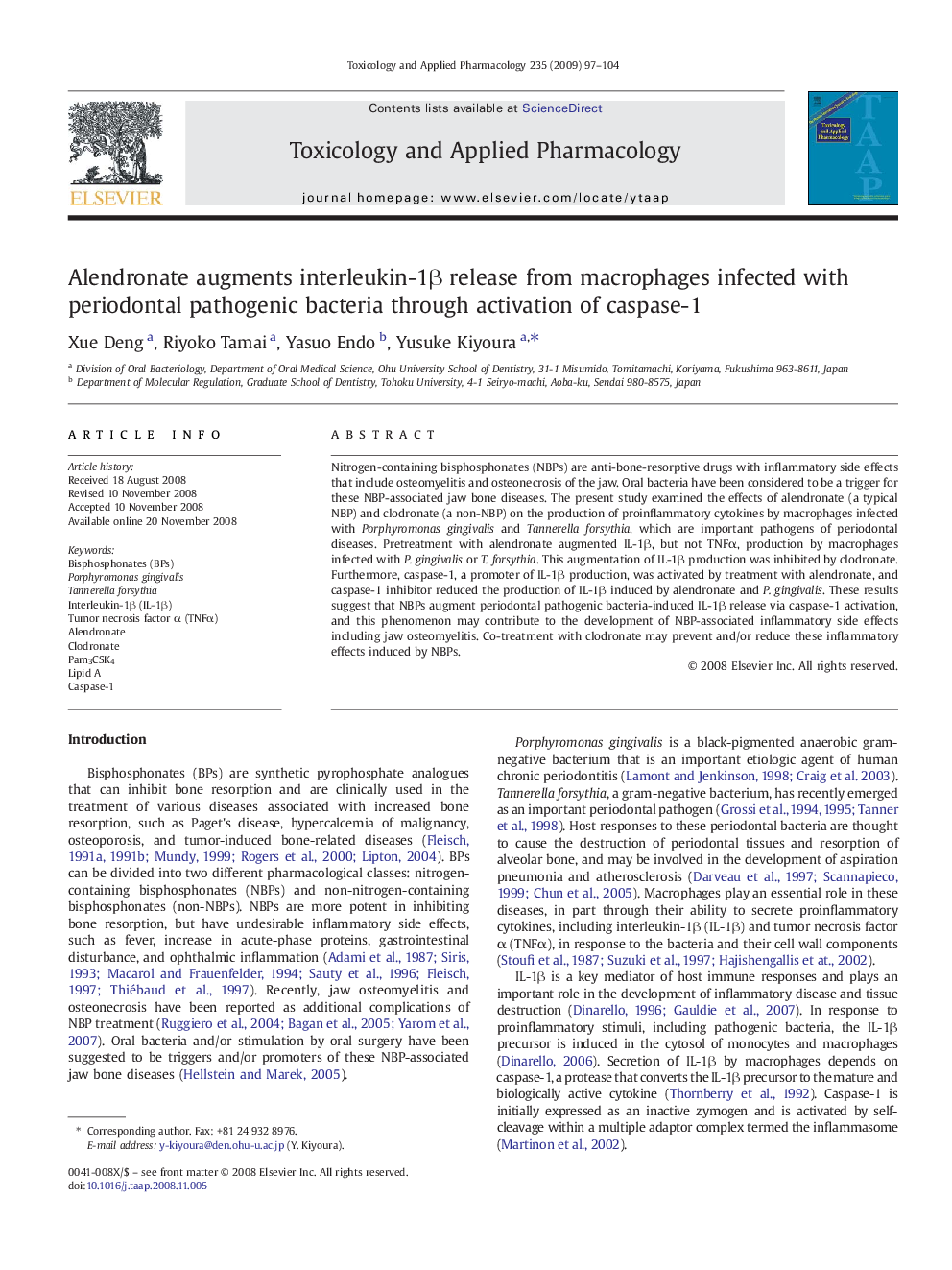| Article ID | Journal | Published Year | Pages | File Type |
|---|---|---|---|---|
| 2570155 | Toxicology and Applied Pharmacology | 2009 | 8 Pages |
Abstract
Nitrogen-containing bisphosphonates (NBPs) are anti-bone-resorptive drugs with inflammatory side effects that include osteomyelitis and osteonecrosis of the jaw. Oral bacteria have been considered to be a trigger for these NBP-associated jaw bone diseases. The present study examined the effects of alendronate (a typical NBP) and clodronate (a non-NBP) on the production of proinflammatory cytokines by macrophages infected with Porphyromonas gingivalis and Tannerella forsythia, which are important pathogens of periodontal diseases. Pretreatment with alendronate augmented IL-1β, but not TNFα, production by macrophages infected with P. gingivalis or T. forsythia. This augmentation of IL-1β production was inhibited by clodronate. Furthermore, caspase-1, a promoter of IL-1β production, was activated by treatment with alendronate, and caspase-1 inhibitor reduced the production of IL-1β induced by alendronate and P. gingivalis. These results suggest that NBPs augment periodontal pathogenic bacteria-induced IL-1β release via caspase-1 activation, and this phenomenon may contribute to the development of NBP-associated inflammatory side effects including jaw osteomyelitis. Co-treatment with clodronate may prevent and/or reduce these inflammatory effects induced by NBPs.
Keywords
Related Topics
Life Sciences
Environmental Science
Health, Toxicology and Mutagenesis
Authors
Xue Deng, Riyoko Tamai, Yasuo Endo, Yusuke Kiyoura,
